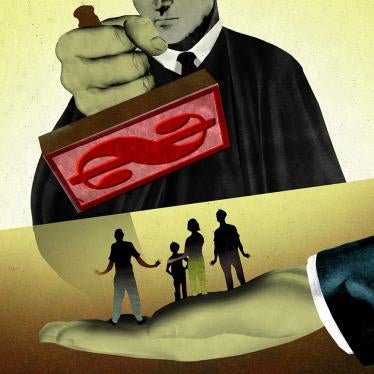Mick Mulvaney has made no secret of his intention to bring the Consumer Financial Protection Bureau to heel. In his congressional testimony this week, the bureau’s acting director pledged to enforce the law but argued the CFPB is redundant and unnecessary. Mulvaney, also the Office of Management and Budget director, undermined his own commitments to use data to drive his enforcement decisions.
Though he cited the fact that “almost a third of complaints into this office related to debt collection,” more than any other category of complaints, Mulvaney already seems to be easing up the CFPB’s efforts to hold payday debt collectors accountable. That would be bad news for consumers caught in these companies’ abusive practices.
The bureau recently dropped an investigation against National Credit Adjusters, a debt collection company that buys payday and other small dollar loans from lenders around the country and on tribal land. The action, to say the least, is a worrying sign. The payday lending industry is notorious for trapping borrowers in cycles of growing debt, fueled by extreme interest rates up to 300 and 500 percent. People in communities of color often are targeted and their wellbeing is affected by this industry, further widening the economic disparities they suffer.
This appears to be part of a broader attempt by Mulvaney to water down regulations and curtail the bureau’s enforcement of regulations on payday and other small dollar lenders that charge exorbitant interest rates — the same lenders from which National Credit Adjusters buys its debt.
In the past five years, the CFPB has received 700 complaints about National Credit Adjusters’ collection practices. These allege repeated abusive phone calls and threats to take legal action, even on debt that was repaid or discharged. Dozens of complaints allege that National Credit Adjusters tried to collect on loans from people who may not even have owed any money.
By dropping the investigation into National Credit Adjusters, Mulvaney calls into question his statement that the bureau’s enforcement will focus on cases where there is “quantifiable and unavoidable harm” to consumers. In New York, a Department of Financial Services investigation found that the payday loans in National Credit Adjusters’ portfolio carried interest rates “substantially” higher than the state’s criminal usury cap of 25 percent. That investigation found the company attempted to collect on 7,325 “void and unenforceable” payday loans in New York, and resulted in an order to repay the 4,792 it had succeeded in collecting, as well as a $200,000 civil penalty. Reuters reported that the CFPB’s own investigation found that National Credit Adjusters wrongly collected around $50 million nationally, of which bureau lawyers were hoping to return $45 million to victims.
Despite this evidence, Mulvaney ordered the agency — the federal bureau tasked to protect consumers — to drop its case against the company. In doing so, Mulvaney has reinforced the widespread fears that on his watch industries that exploit and abuse consumers and whose activities led to the creation of the CFPB in the first place will not face enforcement actions, despite any “quantifiable” harm consumers have suffered and the bureau has documented.
Congress soon may be called upon to vote to overturn the CFPB’s rules to rein in payday lenders, known as the Small Dollar Loans Rule. Instead of agreeing to do that, Congress should make clear to Mulvaney that the wellbeing of their constituents is more important to them than the prerogatives of debt collectors, and urge him to follow through on his commitments to protect American consumers.
Consumers who are concerned about their financial rights have the power to let their congressional representatives know that they will not accept efforts to trigger a drastic backslide in the federal government’s protection of their rights.
Komala Ramachandra is a senior researcher in business and human rights at Human Rights Watch.









